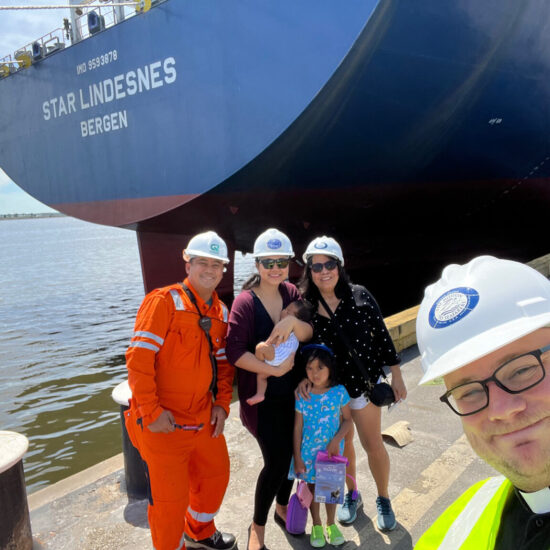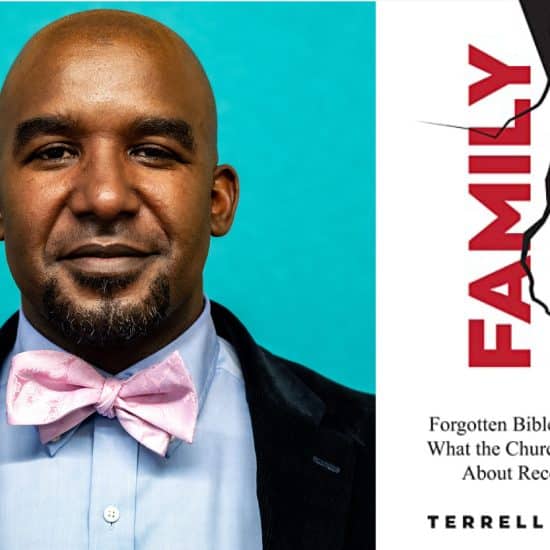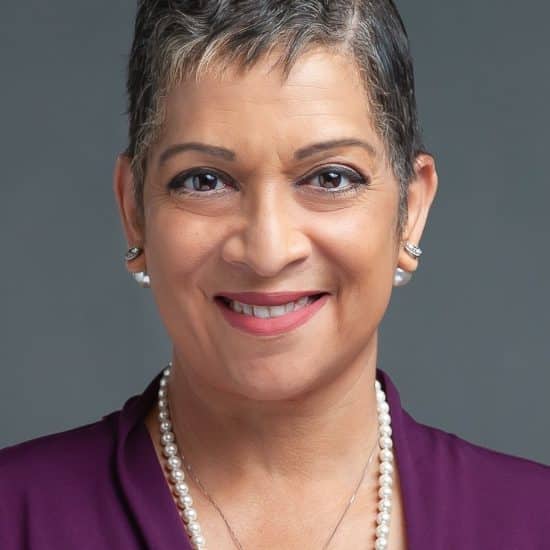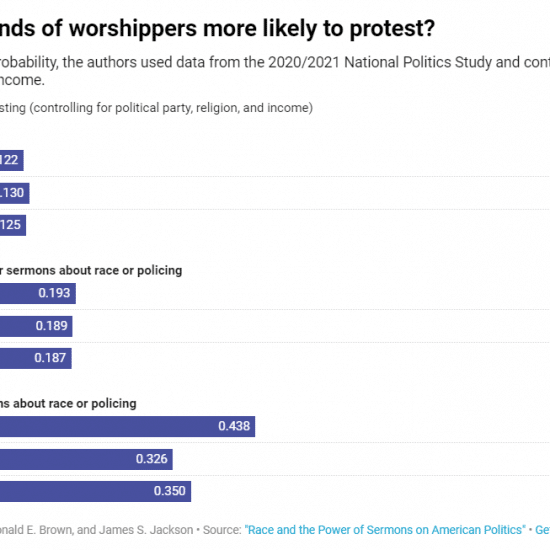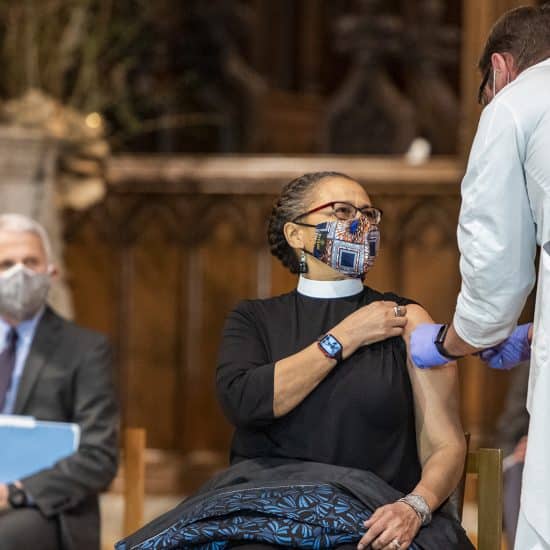SPRINGFIELD — "I've been living a lie. I'm an alcoholic."
Forty leaders and other members of what was then called Nu Brew Church — now Center City Church — sat stunned as their pastor, Richard "Rich" Yasinski offered to resign after admitting he had turned to alcohol a year earlier for relief from medical and emotional stress.
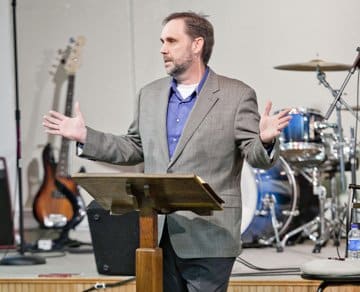
A recovering alcoholic, Richard "Rich" Yasinski, pastor of Center City Church in Springfield, preaches on Easter Sunday. (Colton Salmons photo)
|
"I was waiting for the lash out, but there wasn't one. A few started to cry and then all of them gathered around me," he said.
Yasinski's struggle actually began when he was just a kid growing up in what he describes as a dysfunctional family, with many alcoholics. He followed the pattern and started drinking at a young age. But at 19, he turned his life to Christ, answered the Lord's call to ministry and gave up alcohol completely.
That was until he hit his 40s, faced a major medical issue and questioned his ministry effectiveness.
At 40, he was diagnosed with ulcerative colitis, an inflammatory intestinal disease. Treated with medications, including steroids, for two years, Yasinski finally underwent surgery to remove his colon. Then a year later, he had a second surgery to place an internal pouch.
As the medical issue took a physical toll, he struggled emotionally. He and wife Rebecca had started Nu Brew, and Yasinski had begun training some men to become elders. "But I felt like the church was dying on the vine," he admitted.
Then depression set in. "One night I was out shoveling snow and I thought it would feel good to have some brandy just to get warm," he said.
He bought a small bottle and indulged that evening. "Once the alcohol hit my system it made me feel so good. The stress was gone and I felt so good," he said. "I didn't get drunk but the mental desire kicked in."
The church was in transition because the building members had been leasing was no longer available, so Yasinski worked from home. Two weeks after finishing that first small bottle, he bought a bigger one. "While my wife was at work, I would go to the garage, my hiding place, and take a big drink," he admitted.
That big drink quickly escalated to a fifth a day. Yasinski finally confessed to his physician who tried to convince him to seek help. "But I was so mentally addicted, I didn't want help," Yasinski admitted.
He had managed to keep his problem hidden from Rebecca until she found him blacked out one day when she came home from work. "She protected me but she didn't enable me," he said.
With Rebecca's help, he went through detox three times. "I felt so much guilt, so much shame. I would swear off the alcohol for two or three days, but I couldn't sustain it," he said. "I felt like there was not a soul I could talk to…. I avoided my pastor friends…and then decided to come clean with the church."
He called mostly church leaders, asking them to meet him at his home on a Saturday night. "Of course, I had been drinking," he admitted. But Rebecca contacted a trusted friend who drove Yasinski around town all that afternoon. "And the only thing he would let me drink was coffee," Rich said.
The congregation responded to Yasinski's announcement by paying for a 40-day rehab treatment in Florida, allowing him a two-month sabbatical once he returned, and continuing to pay his salary. He started attending Alcoholics Anonymous and other meetings. "It took about a year to get my clarity back," he said.
While members forgave him, the church struggled as well about retaining Yasinski as pastor. "The elders really wrestled with the issue because they wanted biblical integrity…but they realized God had forgiven me and they forgave me…. They really ministered to me, even when I had nothing to give back," he said.
The congregation's compassion and willingness to forgive and to stand behind their pastor not only helped restore his ministry. God directed that compassion and today Center City Church ministers to others caught in all types of addictions.
And the church has grown. Not one person left the church and the elders who were being trained stepped up to handle some of the pastoral duties.
"The people had the freedom to say, 'If you can have this freedom to be this transparent, it means the church can, too,'" he said. "It totally made us a more transparent church…. Because of their grace shown to me, I've been able to use this."
God opened the opportunity for the church to lease a building on Commercial Street where many homeless people gather. "The church is saying, 'Let's use this. Satan meant it for evil and God is using it for good.'"
Average attendance has grown to 130 to 150 for worship, about a third of which are recovering addicts.
Now 47, Yasinski credits Center City Church with saving his life as well as his ministry. "I would probably have kept drinking if the church had turned away. In fact, I wanted them to turn away because I was so addicted and was out of control. When they showed me grace, I had to think maybe I am worth something," he said.
He encourages pastors to find an accountability partner, "someone to be transparent with," throughout their ministry, and he encourages churches to support their ministers.
"Pastors feed and want to minister to their flock…but when something happens to them, who are they going to turn to? The church needs to be there for them when they hurt."

